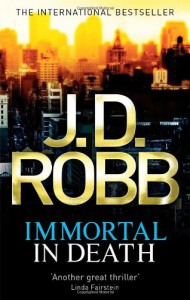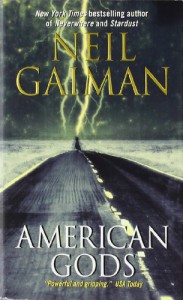
Review: City of Bones (no, not that one)

Not the book everyone thinks of when they hear "City of Bones," unfortunately. I have no idea what that one is about, but this one is actually about bones. Cities and wastelands littered with bones and sand and an ancient mystery tied to bones (among other things) and a lot of mysticism revolving around the usage of bones, hence the relevant title.
I think most readers would give this book a 3- to 4-star rating, but for me it's nearly 5 stars. I rarely reread a book right away after finishing it the first time around--this book made me to that. I rarely wish books were longer--this book made me do that too. After finishing this book a second time, I wished it was part of a series. There's still so much left that can span a continuous series. The easy pacing, engaging characterization, interesting plotting, and overall atmosphere of the story made it an very enjoyable read.
Without further ado, this is a post-apocalyptic semi-steampunk desert fantasy, which means it's mostly fantasy with some interesting sci-fi parts.
As depicted on the front cover, this story takes place in a barren setting overrun by deserts and wastelands. The few cities left alive following a long-ago apocalypse are struggling to survive under a lot of strain--socially, economically, religiously, spiritually, morally, etc. It's not clear when or how the apocalypse came about due to all records being destroyed, but it was probably some centuries ago.
The main story takes place in Charisat, the largest and wealthiest surviving city surrounded by the Waste, former oceans that have been turned into vast fiery desert pits. What's special about Charisat is that it's a multi-level (Tier) city and its citizens' socio-economic statuses are tied to where they live on these Tiers, with the highest Tiers set aside for royalty, politicians, and religious figures; the middle Tiers are for merchants; and the lowest Tiers are for the poor, non-citizens, and other outcasts. More about Charisat below*.
Half of the adventure/mystery in this story is focused on digging into the past, discovering pieces of relics--ancient artifacts--and figuring out their actual functions. The belief is that all of these relics are small pieces of a huge system of some kind that the Ancients--people living before the apocalypse--made and used somehow. The only people believed to know how to use these machines were the Survivors--those who survived the apocalypse--but for some reason, these people did not pass on the knowledge to their descendants. They only left cryptic textbooks, strange notes, and weird drawings behind, as crazy ancestors tend to do. Hunting down these relics and bartering for them, or in some cases stealing them outright, is the other half of the adventure/mystery. And what's an adventure without political and religious intrigue and a crazy cult chasing after the relic hunters? Of course time is as limited as water once everyone realizes that by piecing the relics together they begin to unravel the mystery of the apocalypse.
The relic hunters are: Khat, a not quite human non-citizen hiding in Charisat from a mysterious past; Sagai, also a non-citizen, relic scholar, and Khat's partner in crime; and Elen, a young determined scholar mage ("Warder") from the upper Tiers on a secret mission. Due to their extensive knowledge of history and valuable relics, Khat and Sagai are hired on (read: forced) to help Elen in her search. They don't have much choice in the matter since they're lower-Tiered immigrants who don't want to offend the authorities or get kicked out of the city by refusing to help. Don't worry, there's no love triangle here, but things do become more tense as these three come closer to unraveling the mystery.
The setting is both fantastical and realistic. It's a feat of imagination, but at the same time, the depictions borrow from familiar cultures and customs of the Middle East, such as veils and preservation of identity as a social status. The terrains and climates are distinctly that of a desert world, and details pertinent to both city and society (of Charisat) are casually slipped into narration and conversations to reinforce the feeling of being in an unfamiliar place that feels vaguely familiar. Dry heat, searing sand, scorching sun, burning paved roads, gleaming rooftops, billowing dust clouds--all minor details that add to the overall atmosphere of the story.
(show spoiler)
* More on the social order of Charisat:
(show spoiler)
Some quotable moments:
(show spoiler)
Lastly, I always wanted to use this meme, but never had the chance until now.
(show spoiler)

 6
6
 3
3
































